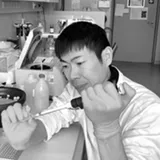We study the way in which signalling pathways, metabolism and mechanical forces control cardiomyocytes. In particular, the group investigates mechanisms that change cardiomyocyte phenotype, which is stable under most circumstances in the adult mammalian heart. Terminally differentiated cardiomyocytes rarely divide, and thus the heart cannot repair lost cardiac muscle caused by myocardial infarction or other insults. In contrast, zebrafish and newts naturally regenerate the damaged heart by changing the existing cardiomyocyte phenotype, processes in which cardiomyocyte dedifferentiation, proliferation and subsequent redifferentiation are important to rebuild new functional cardiac muscle. To address our scientific questions, we take advantage of both regenerative (zebrafish) and non-regenerative (mouse) models as well as human iPSC-derived cardiomyocytes.

